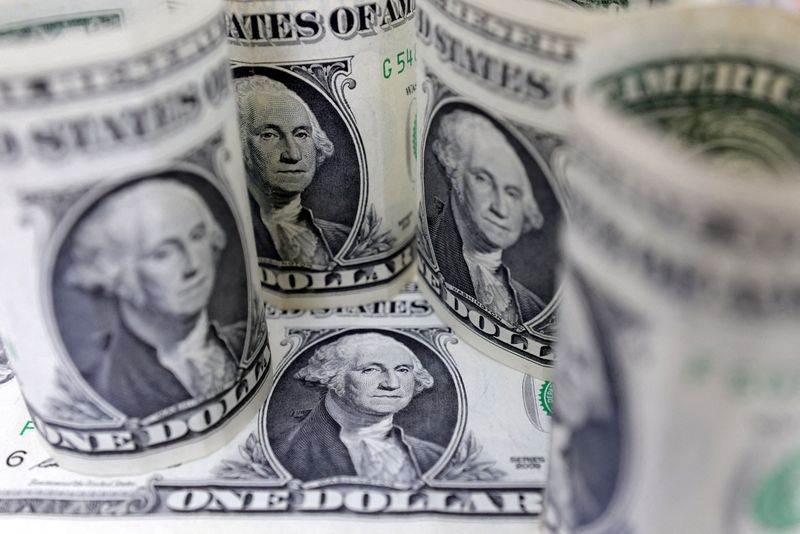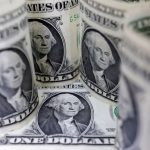LONDON (Reuters) – The dollar paused on Monday as investors trained their sights on U.S. inflation data later this week, while the yen slipped close to 34-year lows as traders remained on alert for any potential action in Tokyo to support the weakening currency.
The dollar fluctuated last week as traders digested a mixed bag of U.S. economic data, with a slowdown in services growth followed by unexpectedly strong hiring numbers that prompted the market to pare bets on Federal Reserve rate cuts this year.
The dollar index – which tracks the greenback against six major peers – was last broadly flat on Monday at 104.38, while U.S. Treasury yields, which reflect interest rate move expectations, pushed higher.
U.S. consumer price inflation for March on Wednesday will be the next big test for dollar strength, while the European Central Bank (ECB) policy meeting on Thursday is the other main economic marker for big global currencies this week.
“The latest developments have increased the risk that the (Federal Reserve) could lag behind other major central banks when lowering interest rates,” currency analysts at MUFG said in a note.
“Another upside inflation surprise could trigger a bigger hawkish reassessment of Fed rate-cut expectations and open the door for the U.S. dollar to break higher,” the note added.
The dollar strengthened 0.16% against the yen on the day to 151.88, putting it within a whisker of its highest since July 1990.
Japanese Prime Minister Fumio Kishida said on Friday authorities will use “all available means” to deal with excessive yen falls, stressing Tokyo’s readiness to intervene in the market to prop up the currency.

Bank of Japan Governor Kazuo Ueda addressed the country’s parliament on Monday, but gave little away on monetary policy and said he had succeeded in adopting a simpler policy framework.
A former top currency official in Japan, Takehiko Nakao, told Reuters that authorities could intervene in the foreign exchange market to stem sharp falls in the yen “at any time” if the moves were sufficient. “The upside in dollar-yen is limited and the daily range is very low because of the risk of intervention by Japanese authorities,” said Nomura currency strategist Jin Moteki. The euro dipped 0.1% at $1.08305, while sterling was last trading at $1.26255, down 0.1% on the day. The base case for the ECB is to hold rates this week and possibly reinforce the possibility of a cut in June. But while the ECB is increasingly confident that inflation is heading back to its 2% target, it has remained vague about further easing. In cryptocurrencies, bitcoin last rose 5.3% to $71,230.
To read the full article, Click Here

